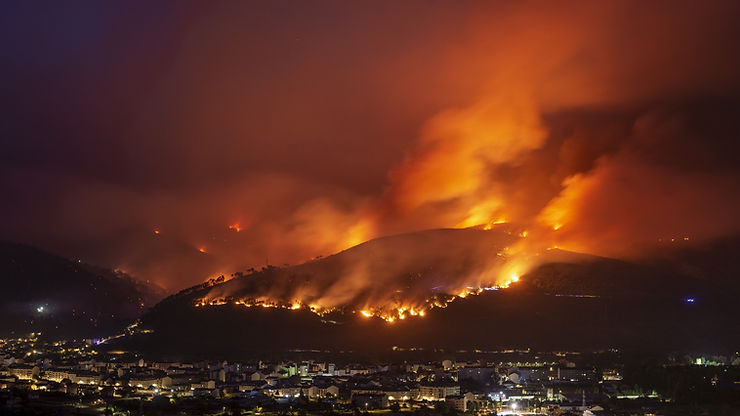By: Sarah Zhong
A couple of months ago, France had its hottest May on record, with highs in several cities. Last month France was hit again, by a spring heatwave that also touched Spain, Italy, and other European nations. This month, Poland and other parts of Eastern Europe experienced extreme heat.
Now Europe’s temperatures are sky-high, at or near triple digits from Spain to the British Isles. Wildfires are burning in many countries, and much of the continent is in the misery of a prolonged drought.
Scientists say the extreme heat has a trend. Heat waves in Europe are increasing in number and intensity at a faster rate than almost any other part of the planet, including the Western United States.
Global warming plays a part, as it does in extreme heat around the world. Temperatures are, on average, about two degrees Fahrenheit (1.1 degrees Celsius) higher than they were in the late 19th century before portions of carbon dioxide and other heat-trapping gasses became more common.
However, global warming isn’t the only factor. The circulation of the atmosphere and the ocean may make Europe a heat wave hot spot.
Low-pressure zones tend to draw air toward them. In this case, the low-pressure zone has been fixedly drawing air from North Africa toward Europe. “It’s pumping hot air northward,” said Kai Kornhuber, a researcher at Lamont-Doherty Earth Observatory.
This month, Dr. Kornhuber played a role in a study that found heat waves in Europe had increased in frequency and intensity over the past four decades. The researchers found that many European heat waves developed when the jet stream had temporarily split in two, leaving an area of weak winds and high-pressure air between the two branches that contributes to the buildup of extreme heat.
Dr. Kornhuber said warming in the Arctic, which is occurring much faster than in other parts of the world, may also be contributing. As the Arctic heats up at a faster rate, its temperature differential with the Equator decreases. This leads to a decrease in summertime winds, which has the effect of making weather systems linger for longer. “We do see an increase in persistence,” he said.
The increase in heat waves in Europe is certain, but the future of these heat waves is uncertain. Will these heat waves spread around the world? What can we do to prevent them from spreading quickly? We’ll have to turn to science to find out.











